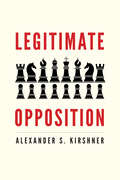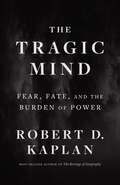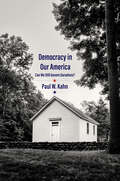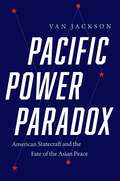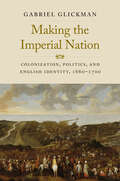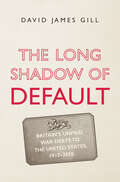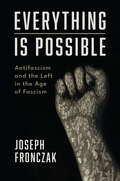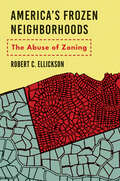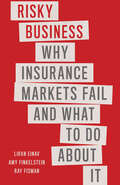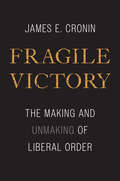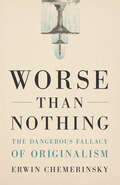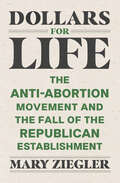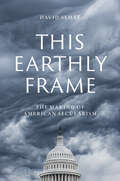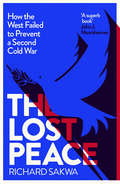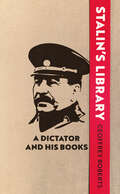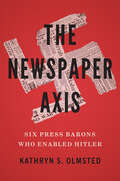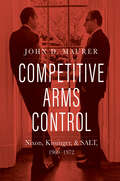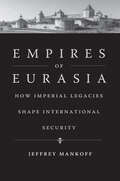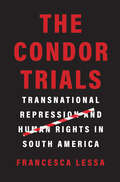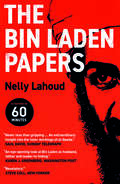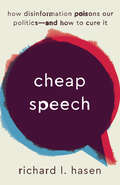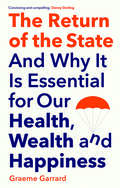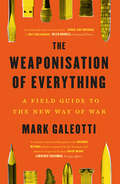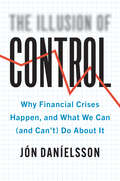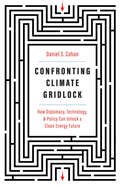- Table View
- List View
Legitimate Opposition
by Alexander S. KirshnerThe first theory of legitimate opposition in fifty years In political systems defined by legitimate opposition, those who hold power allow their rivals to peacefully challenge and displace them, and those who have lost power do not seek to sabotage the winners. Legitimate opposition came under assault at the American capitol on January 6, 2021, and is menaced by populists and autocrats across the globe. Alexander Kirshner provides the first sustained theory of legitimate opposition since the Cold War. On the orthodox view, democracy is lost when legitimate opposition is subverted. But efforts to reconcile opposition with democracy fail to identify the value of the frequently imperfect, unfair and inegalitarian real-world practice. Marshaling a revisionist reconstruction of opposition&’s history, Kirshner&’s book provides a new account of opposition&’s value fit for the twenty-first century and shows why, given the difficult conditions of political life, legitimate opposition is an achievement worth defending.
The Tragic Mind: Fear, Fate, and the Burden of Power
by Robert D. KaplanA moving meditation on recent geopolitical crises, viewed through the lens of ancient and modern tragedy “Classical drama provides crucial lessons for policymakers. . . . A road map for effective, well-considered policy.”—Kirkus Reviews Some books emerge from a lifetime of hard-won knowledge. Robert D. Kaplan has learned, from a career spent reporting on wars, revolutions, and international politics in Europe, the Middle East, and East Asia, that the essence of geopolitics is tragedy. In The Tragic Mind, he employs the works of ancient Greek dramatists, Shakespeare, German philosophers, and the modern classics to explore the central subjects of international politics: order, disorder, rebellion, ambition, loyalty to family and state, violence, and the mistakes of power. The great dilemmas of international politics, he argues, are not posed by good versus evil—a clear and easy choice—but by contests of good versus good, where the choices are often searing, incompatible, and fraught with consequences. A deeply learned and deeply felt meditation on the importance of lived experience in conducting international relations, this is a book for everyone who wants a profound understanding of the tragic politics of our time.
Democracy in Our America: Can We Still Govern Ourselves?
by Paul W. KahnOne of America’s most distinguished political theorists examines what happens when national politics enters a small New England town After the election of 2016 and, even more urgently, after the election of 2020, many citizens looked at the economic and cultural divisions that were causing deep disruptions in American politics and asked, “What is happening to us?” Paul W. Kahn explores these fundamental changes as they show themselves in a small New England town—his home of twenty-five years, Killingworth, Connecticut. His inquiry grounds a democratic theory that puts volunteering, not voting, at its center. Absent active participation, citizens lose the capacity for judgment that comes from working with others to solve real problems. Volunteering, however, is under existential threat today. Changes in civil society, commerce, employment, and public opinion formation have isolated families from each other and from their communities. Even middle-class families live under financial stress, uncertain of their children’s future, and without the support of civil society. Local media has disappeared. Residents do not have the time, information, or interest to volunteer. Under these conditions, national polarization enters local politics, which becomes yet another site for national conflict. To save our democracy, Kahn concludes, we need to find ways of matching opportunities for participation to the ways we live our lives today.
Pacific Power Paradox: American Statecraft and the Fate of the Asian Peace
by Van JacksonA new history of Asian peace since 1979 that considers America’s paradoxical role After more than a century of recurring conflict, the countries of the Asia-Pacific region have managed something remarkable: avoiding war among nations. Since 1979, Asia has endured threats, near-miss crises, and nuclear proliferation but no interstate war. How fragile is this “Asian peace,” and what is America’s role in it? Van Jackson argues that because Washington takes for granted that the United States is a force for good, successive presidencies have failed to see how their statecraft impedes more durable forms of security and inadvertently embrittles peace. At times, the United States has been the region’s bulwark against instability, but America has been a threat to Asian peace as much as it has been its guarantor. By grappling with how America fits into the Asian story, Van Jackson shows how regional stability has diminished because of U.S. choices, and why America’s margin for geopolitical error is less now than ever before.  
Making the Imperial Nation: Colonization, Politics, and English Identity, 1660-1700 (The Lewis Walpole Series in Eighteenth-Century Culture and History)
by Gabriel GlickmanHow did the creation of an overseas empire change politics in England itself? After 1660, English governments aimed to convert scattered overseas dominions into a coordinated territorial power base. Stuart monarchs encouraged schemes for expansion in America, Africa, and Asia, tightened control over existing territories, and endorsed systems of slave labor to boost colonial prosperity. But English power was precarious, and colonial designs were subject to regular defeats and failed experimentation. Recovering from recent Civil Wars at home, England itself was shaken by unrest and upheaval through the later seventeenth century. Colonial policies emerged from a kingdom riven with inner tensions, which it exported to enclaves overseas. Gabriel Glickman reinstates the colonies within the domestic history of Restoration England. He shows how the pursuit of empire raised moral and ideological controversies that divided political opinion and unsettled many received ideas of English national identity. Overseas ambitions disrupted bonds in Europe and cast new questions about English relations with Scotland and Ireland. Vigorous debates were provoked by contact with non-Christian peoples and by changes brought to cultural tastes and consumer habits at home. England was becoming an imperial nation before it had acquired a secure territorial empire. The pressures of colonization exerted a decisive influence over the wars, revolutions, and party conflicts that destabilized the later Stuart kingdom.
The Long Shadow of Default: Britain's Unpaid War Debts to the United States, 1917-2020
by David James GillRethinking the causes and consequences of Britain&’s default on its First World War debts to the United States of AmericaThe Long Shadow of Default focuses on an important but neglected example of sovereign default between two of the wealthiest and most powerful democracies in modern history. The United Kingdom accrued considerable financial debts to the United States during and immediately after the First World War. In 1934, the British government unilaterally suspended payment on these debts. This book examines why the United Kingdom was one of the last major powers to default on its war debts to the United States and how these outstanding obligations affected political and economic relations between both governments. The British government&’s unpaid debts cast a surprisingly long shadow over policymaking on both sides of the Atlantic. Memories of British default would limit transatlantic cooperation before and after the Second World War, inform Congressional debates about the economic difficulties of the 1970s, and generate legal challenges for both governments up until the 1990s. More than a century later, the United Kingdom&’s war debts to the United States remain unpaid and outstanding. David James Gill provides one of the most detailed historical analyses of any sovereign default. He brings attention to an often-neglected episode in international history to inform, refine, and sometimes challenge the wider study of sovereign default.
Everything Is Possible: Antifascism and the Left in the Age of Fascism
by Joseph FronczakThe fascinating history of how the antifascist movement of the 1930s created “the left” as we know it today In the middle years of the Great Depression, the antifascist movement became a global political force, powerfully uniting people from across divisions of ideology, geography, race, language, and nationality. Joseph Fronczak shows how socialists, liberals, communists, anarchists, and others achieved a semblance of unity in the fight against fascism. Depression-era antifascists were populist, militant, and internationalist. They understood fascism in global terms, and they were determined to fight it on local terms. In the United States, antifascists fought against fascism on the streets of cities such as Chicago and New York, and they connected their own fights to the ones raging in Germany, Italy, and Spain. As he traces the global trajectory of the antifascist movement, Fronczak argues that its most significant legacy is its creation of “the left” as we know it today: an international conglomeration of people committed to a shared politics of solidarity.
America's Frozen Neighborhoods: The Abuse of Zoning
by Robert C. EllicksonThis book examines local zoning policies and suggests reforms that states and the federal government might adopt to counter the negative effects of exclusionary zoning In this book, Robert Ellickson asserts that local zoning policies are the most consequential regulatory program in the United States. Many localities have created barriers to the development of less costly forms of housing. Numerous economists have found that current zoning practices inflict major damage on the national economy. Using Silicon Valley, the Greater New Haven area, and the northwestern portion of Greater Austin as case studies, Ellickson shows in unprecedented detail how the zoning system works and recommends steps for its reform. Zoning regulations, Ellickson demonstrates, are hard to dislodge once localities have enacted them. He develops metrics to measure the existence and costs of exclusionary zoning, and suggests reforms that states and the federal government could undertake to counter the detrimental effects of local policies. These include the cartelization of housing markets and the aggravation of racial and class segregation.
Risky Business: Why Insurance Markets Fail and What to Do About It
by Ray Fisman Amy Finkelstein Liran EinavAn engaging and accessible examination of what ails insurance markets—and what to do about it—by three leading economists Why is dental insurance so crummy? Why is pet insurance so expensive? Why does your auto insurer ask for your credit score? The answer to these questions lies in understanding how insurance works. Unlike the market for other goods and services—for instance, a grocer who doesn&’t care who buys the store&’s broccoli or carrots—insurance providers are more careful in choosing their customers, because some are more expensive than others. Unraveling the mysteries of insurance markets, Liran Einav, Amy Finkelstein, and Ray Fisman explore such issues as why insurers want to know so much about us and whether we should let them obtain this information; why insurance entrepreneurs often fail (and some tricks that may help them succeed); and whether we&’d be better off with government-mandated health insurance instead of letting businesses, customers, and markets decide who gets coverage and at what price. With insurance at the center of divisive debates about privacy, equity, and the appropriate role of government, this book offers clear explanations for some of the critical business and policy issues you&’ve often wondered about, as well as for others you haven&’t yet considered.
Fragile Victory: The Making and Unmaking of Liberal Order
by James E. CroninHow the history of liberal order and democratic politics since the 1930s explains ongoing threats to democracy and international order The liberal democratic order that seemed so stable in North America and Western Europe has become precarious. James E. Cronin argues that liberalism has never been secure and that since the 1930s the international order has had to be crafted, redeployed, and extended in response to both victories and setbacks. Beginning with the German and Japanese efforts in the 1930s to establish a system based on empire, race, economic protectionism, and militant nationalism, Cronin shows how the postwar system, established out of a revulsion at the ideas of fascism, repeatedly reinvented itself in the face of the Cold War, anticolonial insurgencies, the economic and political crises of the 1970s, the collapse of communism, the rise of globalization, and the financial crisis of 2008. Cronin emphasizes the links between internal and external politics in sustaining liberal order internationally and the domestic origins and correlates of present difficulties. Fragile Victory provides the context necessary to understand such diverse challenges as the triumph of Brexit, the election of Trump, the rise of populism, and the Russian invasion of Ukraine.
Worse Than Nothing: The Dangerous Fallacy of Originalism
by Erwin ChemerinskyWhy originalism is a flawed, incoherent, and dangerously ideological method of constitutional interpretation Originalism, the view that the meaning of a constitutional provision is fixed when it is adopted, was once the fringe theory of a few extremely conservative legal scholars but is now a well-accepted mode of constitutional interpretation. Three of the Supreme Court&’s nine justices explicitly embrace the originalist approach, as do increasing numbers of judges in the lower courts. Noted legal scholar Erwin Chemerinsky gives a comprehensive analysis of the problems that make originalism unworkable as a method of constitutional interpretation. He argues that the framers themselves never intended constitutional interpretation to be inflexible and shows how it is often impossible to know what the &“original intent&” of any particular provision was. Perhaps worst of all, though its supporters tout it as a politically neutral and objective method, originalist interpretation tends to disappear when its results fail to conform to modern conservative ideology.
Dollars for Life: The Anti-Abortion Movement and the Fall of the Republican Establishment
by Mary ZieglerA new understanding of the slow drift to extremes in American politics that shows how the antiabortion movement remade the Republican Party &“A timely and expert guide to one of today&’s most hot-button political issues.&”—Publishers Weekly (starred review) &“A sober, knowledgeable scholarly analysis of a timely issue.&”—Kirkus Reviews &“[Ziegler&’s] argument in [is] that, over the course of decades, the anti-abortion movement laid the groundwork for an insurgent candidate like Trump.&”—Jennifer Szalai, New York Times The modern Republican Party is the party of conservative Christianity and big business—two things so closely identified with the contemporary GOP that we hardly notice the strangeness of the pairing. Legal historian Mary Ziegler traces how the anti-abortion movement helped to forge and later upend this alliance. Beginning with the Supreme Court&’s landmark decision in Buckley v. Valeo, right‑to‑lifers fought to gain power in the GOP by changing how campaign spending—and the First Amendment—work. The anti-abortion movement helped to revolutionize the rules of money in U.S. politics and persuaded conservative voters to fixate on the federal courts. Ultimately, the campaign finance landscape that abortion foes created fueled the GOP&’s embrace of populism and the rise of Donald Trump. Ziegler offers a surprising new view of the slow drift to extremes in American politics—and explains how it had everything to do with the strange intersection of right-to-life politics and campaign spending.
This Earthly Frame: The Making of American Secularism
by David SehatAn award-winning scholar&’s sweeping history of American secularism, from Jefferson to Trump &“An essential book for understanding today&’s culture wars. Sehat&’s clear-eyed and elegant narrative will change how you think about our supposedly secular age.&”—Molly Worthen, University of North Carolina at Chapel Hill In This Earthly Frame, David Sehat narrates the making of American secularism through its most prominent proponents and most significant detractors. He shows how its foundations were laid in the U.S. Constitution and how it fully emerged only in the twentieth century. Religious and nonreligious Jews, liberal Protestants, apocalyptic sects like the Jehovah&’s Witnesses, and antireligious activists all used the courts and the constitutional language of the First Amendment to create the secular order. Then, over the past fifty years, many religious conservatives turned against that order, emphasizing their religious freedom. Avoiding both polemic and lament, Sehat offers a powerful reinterpretation of American secularism and a clear framework for understanding the religiously infused conflict of the present.
The Lost Peace: How the West Failed to Prevent a Second Cold War
by Richard SakwaThe end of the Cold War was an opportunity – our inability to seize it has led to today&’s renewed era of great power competition 1989 heralded a unique prospect for an enduring global peace, as harsh ideological divisions and conflicts began to be resolved. Now, three decades on, that peace has been lost. With war in Ukraine and increasing tensions between China, Russia, and the West, great power politics once again dominates the world stage. But could it have been different? Richard Sakwa shows how the years before the first mass invasion of Ukraine represented a hiatus in conflict rather than a lasting accord – and how, since then, we have been in a &‘Second Cold War&’. Tracing the mistakes on both sides that led to the current crisis, Sakwa considers the resurgence of China and Russia and the disruptions and ambitions of the liberal order that opened up catastrophic new lines of conflict. This is a vital, strongly-argued account of how the world lost its chance at peace, and instead saw the return of war in Europe, global rivalries, and nuclear brinkmanship.
Stalin's Library: A Dictator and his Books
by Geoffrey RobertsA compelling intellectual biography of Stalin told through his personal library &“[A] fascinating new study.&”—Michael O&’Donnell, Wall Street Journal In this engaging life of the twentieth century&’s most self-consciously learned dictator, Geoffrey Roberts explores the books Stalin read, how he read them, and what they taught him. Stalin firmly believed in the transformative potential of words and his voracious appetite for reading guided him throughout his years. A biography as well as an intellectual portrait, this book explores all aspects of Stalin&’s tumultuous life and politics. Stalin, an avid reader from an early age, amassed a surprisingly diverse personal collection of thousands of books, many of which he marked and annotated revealing his intimate thoughts, feelings, and beliefs. Based on his wide-ranging research in Russian archives, Roberts tells the story of the creation, fragmentation, and resurrection of Stalin&’s personal library. As a true believer in communist ideology, Stalin was a fanatical idealist who hated his enemies—the bourgeoisie, kulaks, capitalists, imperialists, reactionaries, counter-revolutionaries, traitors—but detested their ideas even more.
The Newspaper Axis: Six Press Barons Who Enabled Hitler
by Kathryn S. OlmstedHow six conservative media moguls hindered America and Britain from entering World War II &“A landmark in the political history of journalism.&”—Michael Kazin, author of What It Took to Win: A History of the Democratic Party As World War II approached, the six most powerful media moguls in America and Britain tried to pressure their countries to ignore the fascist threat. The media empires of Robert McCormick, Joseph and Eleanor Patterson, and William Randolph Hearst spanned the United States, reaching tens of millions of Americans in print and over the airwaves with their isolationist views. Meanwhile in England, Lord Rothermere&’s Daily Mail extolled Hitler&’s leadership and Lord Beaverbrook&’s Daily Express insisted that Britain had no interest in defending Hitler&’s victims on the continent. Kathryn S. Olmsted shows how these media titans worked in concert—including sharing editorial pieces and coordinating their responses to events—to influence public opinion in a right-wing populist direction, how they echoed fascist and anti‑Semitic propaganda, and how they weakened and delayed both Britain&’s and America&’s response to Nazi aggression.
Competitive Arms Control: Nixon, Kissinger, and SALT, 1969-1972
by John D. MaurerThe essential history of the Strategic Arms Limitation Talks (SALT) during the Nixon Administration How did Richard Nixon, a president so determined to compete for strategic nuclear advantage over the Soviet Union, become one of the most successful arms controllers of the Cold War? Drawing on newly opened Cold War archives, John D. Maurer argues that a central purpose of arms control talks for American leaders was to channel nuclear competition toward areas of American advantage and not just international cooperation. While previous accounts of the Strategic Arms Limitation Talks (SALT) have emphasized American cooperative motives, Maurer highlights how Nixon, National Security Advisor Henry Kissinger, and Secretary of Defense Melvin Laird shaped negotiations, balancing their own competitive interests with proponents of cooperation while still providing a coherent rationale to Congress. Within the arms control agreements, American leaders intended to continue deploying new weapons, and the arms control restrictions, as negotiated, allowed the United States to sustain its global power, contain communism, and ultimately prevail in the Cold War.
Empires of Eurasia: How Imperial Legacies Shape International Security
by Jeffrey MankoffHow the collapse of empires helps explain the efforts of China, Iran, Russia, and Turkey to challenge the international order “This is a must read to understand the backstory of conflicts from Crimea to Xinjiang.”—Fiona Hill, author of There Is Nothing for You Here Eurasia’s major powers—China, Iran, Russia, and Turkey—increasingly intervene across their borders while seeking to pull their smaller neighbors more firmly into their respective orbits. While analysts have focused on the role of leaders such as Vladimir Putin and Recep Tayyip Erdoğan in explaining this drive to dominate neighbors and pull away from the Western-dominated international system, they have paid less attention to the role of imperial legacies. Jeffrey Mankoff argues that what unites these contemporary Eurasian powers is their status as heirs to vast terrestrial empires, whose collapse left all four states deeply entangled with the lands and peoples along their peripheries but outside their formal borders. Today, they have all found new opportunities to project power within and beyond their borders in patterns shaped by their respective imperial pasts.
The Condor Trials: Transnational Repression and Human Rights in South America
by Francesca LessaStories of transnational terror and justice illuminate the past and present of South America&’s struggles for human rights Through the voices of survivors and witnesses, human rights activists, judicial actors, journalists, and historians, Francesca Lessa unravels the secrets of transnational repression masterminded by South American dictators between 1969 and 1981. Under Operation Condor, their violent and oppressive regimes kidnapped, tortured, and murdered hundreds of exiles, or forcibly returned them to the countries from which they had fled. South America became a zone of terror for those who were targeted, and of impunity for those who perpetuated the violence. Lessa shows how networks of justice seekers gradually materialized and effectively transcended national borders to achieve justice for the victims of these horrors. Based on extensive fieldwork, archival research, trial ethnography, and over one-hundred interviews, The Condor Trials explores South America&’s past and present and sheds light on ongoing struggles for justice as its societies come to terms with the unparalleled atrocities of their not-so-distant pasts.
The Bin Laden Papers: How the Abbottabad Raid Revealed the Truth about al-Qaeda, Its Leader and His Family
by Nelly LahoudAn inside look at al-Qaeda from 9/11 to the death of its founder—told through the words of Bin Laden and his closest circle As seen on 60 Minutes "A comprehensive, meticulously constructed and eye-opening look at bin Laden as husband, father and leader-in-hiding. . . . An engaging and persuasive read."—Karen J. Greenberg, Washington Post "Never less than gripping. . . . [Offers] an extraordinary insight into the inner workings of al-Qaeda, both before and after 9/11, and lays bare the terrorist organisation’s closely guarded plans, ambitions and frustrations."—Saul David, Sunday Telegraph Usama Bin Laden’s greatest fear was not capture or death but the exposure of al-Qaeda’s secrets. At great risk to themselves and the entire mission, the U.S. Special Operations Forces, who carried out the Abbottabad raid that killed Bin Laden, took an additional eighteen minutes to collect Bin Laden’s hard drives and thereby expose al-Qaeda’s secrets. In this groundbreaking book, Nelly Lahoud dives into Bin Laden’s files and meticulously distills the nearly 6,000 pages of Arabic private communications. For the first time, al-Qaeda’s closely guarded secrets are laid bare, shattering misconceptions and revealing how and what Bin Laden communicated with his associates, his plans for future attacks, and al-Qaeda’s hostility toward countries such as Saudi Arabia, Iran, and Pakistan. Lahoud presents firsthand accounts of al-Qaeda from 9/11 until the elimination of Bin Laden, in his own words and those of his family and closest associates.
Cheap Speech: How Disinformation Poisons Our Politics—and How to Cure It
by Richard L. HasenAn informed and practical road map for controlling disinformation, embracing free speech, saving American elections, and protecting democracy "A fresh, persuasive and deeply disturbing overview of the baleful and dangerous impact on the nation of widely disseminated false speech on social media. Richard Hasen, the country&’s leading expert about election law, has written this book with flair and clarity.&”—Floyd Abrams, author of The Soul of the First Amendment What can be done consistent with the First Amendment to ensure that American voters can make informed election decisions and hold free elections amid a flood of virally spread disinformation and the collapse of local news reporting? How should American society counter the actions of people like former President Donald J. Trump, who used social media to convince millions of his followers to doubt the integrity of U.S. elections and helped foment a violent insurrection? What can we do to minimize disinformation campaigns aimed at suppressing voter turnout? With piercing insight into the current debates over free speech, censorship, and Big Tech&’s responsibilities, Richard L. Hasen proposes legal and social measures to restore Americans&’ access to reliable information on which democracy depends. In an era when quack COVID treatments and bizarre QAnon theories have entered mainstream, this book explains how to assure both freedom of ideas and a commitment to truth.
The Return of the State: And Why it is Essential for our Health, Wealth and Happiness
by Graeme GarrardA vigorous and timely defense of the state as a force for good For decades now wealth and power have been shifting from states to markets. This experiment has been a failure for all but a privileged few. But this trend is beginning to reverse, accelerated by the COVID-19 pandemic, which has seen the state play the most direct and positive role in citizens&’ everyday lives in living memory. Graeme Garrard makes a powerful case for the state as our only realistic hope of countering the rising power of multinational corporations, organized crime, and international organizations that will always put their own interests first. Today the state is essential to the health and welfare of everyone except the rich and powerful. Yet it is being rolled back and whittled away, leaving the well-being of most of us at the mercy of unaccountable private powers that are increasingly free from external control. As Garrard shows, the state is the only realistic way of promoting the public good in our time.
The Weaponisation of Everything: A Field Guide to the New Way of War
by Mark GaleottiAn engaging guide to the various ways in which war is now waged—and how to adapt to this new reality Hybrid War, Grey Zone Warfare, Unrestricted War: today, traditional conflict—fought with guns, bombs, and drones—has become too expensive to wage, too unpopular at home, and too difficult to manage. In an age when America threatens Europe with sanctions, and when China spends billions buying influence abroad, the world is heading for a new era of permanent low-level conflict, often unnoticed, undeclared, and unending. Transnational crime expert Mark Galeotti provides a comprehensive and ground-breaking survey of the new way of war. Ranging across the globe, Galeotti shows how today&’s conflicts are fought with everything from disinformation and espionage to crime and subversion, leading to instability within countries and a legitimacy crisis across the globe. But rather than suggest that we hope for a return to a bygone era of &“stable&” warfare, Galeotti details ways of surviving, adapting, and taking advantage of the opportunities presented by this new reality.
The Illusion of Control: Why Financial Crises Happen, and What We Can (and Can’t) Do About It
by Jon DanielssonA challenge to the conventional wisdom surrounding financial risk, providing insight into why easy solutions to control the financial system are doomed to fail Finance plays a key role in the prosperity of the modern world—but it also brings grave dangers. We seek to manage those threats with a vast array of sophisticated mathematical tools and techniques of financial risk management. Too often, though, we fail to address the greatest risk—the peril posed by our own behavior. Jón Daníelsson argues that critical risk is generated from within, through the interactions of individuals and perpetuated by their beliefs, objectives, abilities, and prejudices. He asserts that the widespread belief that risk originates outside the financial system frustrates our ability to measure and manage it, and the likely consequences of new regulations will help alleviate small-scale risks but, perversely, encourage excessive risk taking. Daníelsson uses lessons from past and recent crises to show that diversity is the best way to safeguard our financial system.
Confronting Climate Gridlock: How Diplomacy, Technology, and Policy Can Unlock a Clean Energy Future
by Daniel S CohanAn atmospheric scientist explains why global climate change mitigation and energy decarbonization demand American diplomacy, technology, and policy &“Daniel Cohan makes a compelling case that the problem of climate change is solvable. Fixing the gridlock on global action requires fixing the gridlock here in the United States of America. Cohan shows how that can be done.&”—David Victor, UC San Diego Professor of environmental engineering Daniel Cohan argues that escaping the gravest perils of climate change will first require American diplomacy, technological innovation, and policy to catalyze decarbonization globally. Combining his own expertise along with insights from more than a hundred interviews with diplomats, scholars, and clean-technology pioneers, Cohan identifies flaws in previous efforts to combat climate change. He highlights opportunities for more successful strategies, including international &“climate clubs&” and accelerated development of clean energy technologies. Grounded in history and emerging scholarship, this book offers a forward-looking vision of solutions to confronting climate gridlock and a clear-eyed recognition of the challenges to enacting them.
